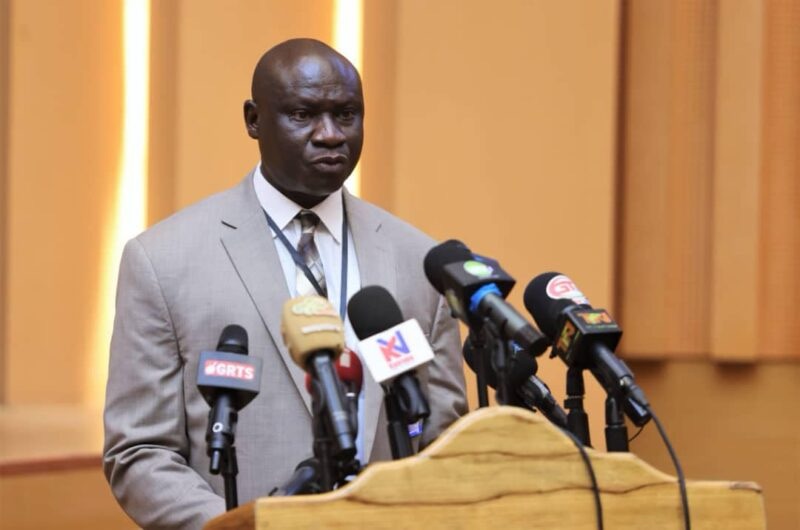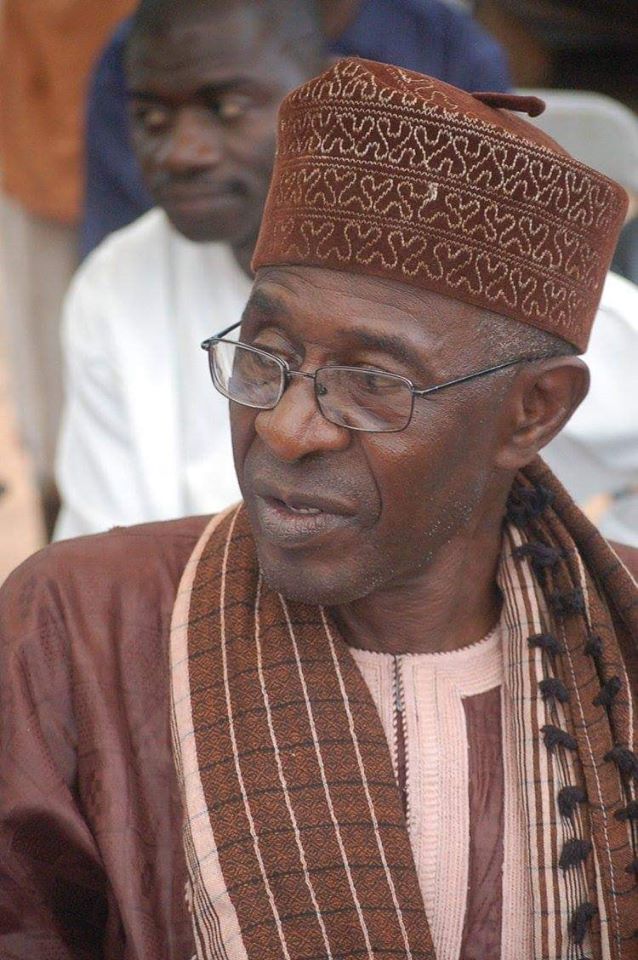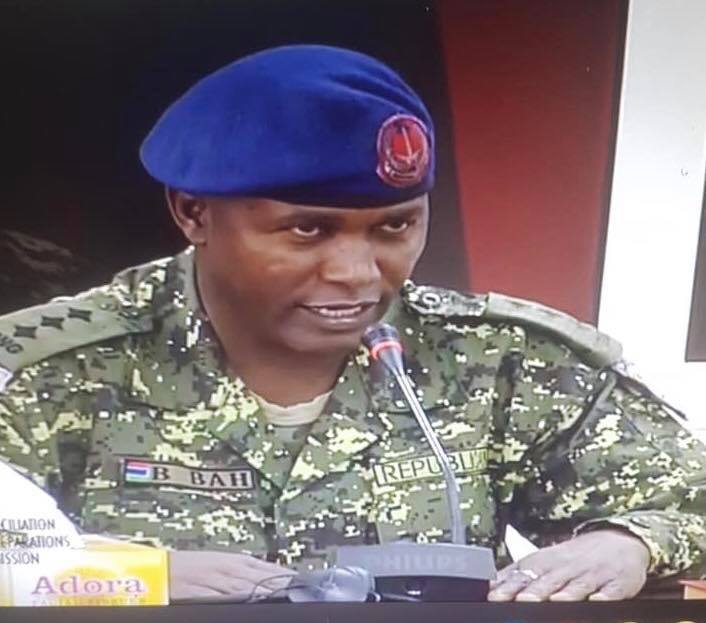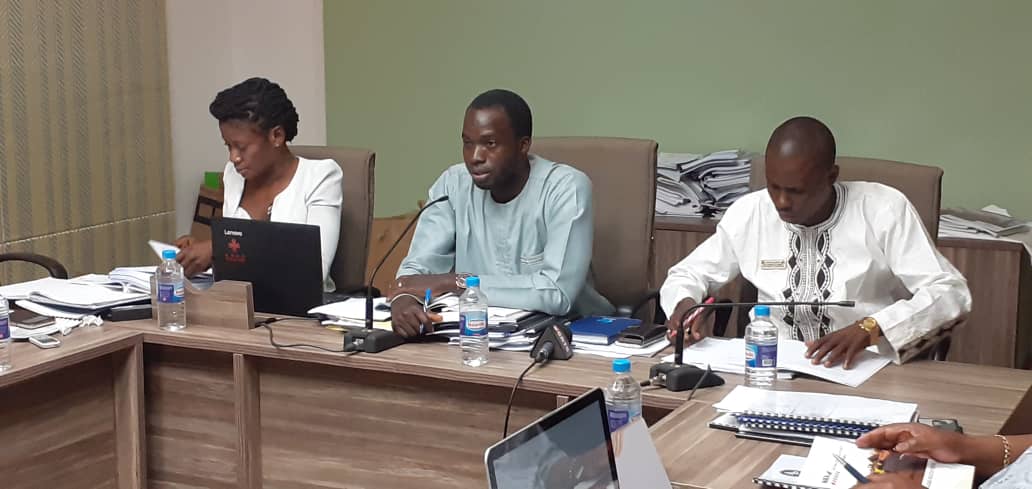By: Momodou Justice Darboe
The Governor of the Central Bank of the Gambia (CBG), Hon. Buah Saidy, has asserted that import substitution would reduce Gambia’s heavy dependency on imported goods, save the country’s foreign exchange and strengthen the stability of the Dalasi.
As The Gambia remains vulnerable to global economic shocks, the CBG governor said the time has come for the country to make a radical shift from the traditional economic and financial approach to economic growth and prosperity.
Governor Saidy recently told a press conference at the Central Bank conference room that reducing the Gambia’s susceptibility to external economic shocks remains at the heart of the apex bank’s interventions.
“It goes to the core of what we are doing in the Central Bank now because we always remind ourselves that we have to have a paradigm shift and to make us believe that that paradigm shift calls for a massive transformative agenda to turn things around,” said the CBG boss. He went on: “Since independence, we’ve been very vulnerable. In fact, during the first regime, I can say, we used to export groundnut. Our main export and cash crop is groundnut. We used to export cotton. We used to export cattle even sheep hide and skin, flowers from the Makumbaya Farm, and other things but that export base has shrunk to the point that we are virtually not exporting much. And we are importing almost everything that we use here. And for 50 years, we’ve been doing the same things and we are getting the same results. So, we need to change if we want to continue. Excuse me but that would be the highest point of madness…You are doing the same thing, in fact, for 59 years to 60 years, you are getting the same result. We have to have a transformative agenda and that is what the NDI is talking to.”
According to Hon. Saidy, the CBG has been preoccupied with turning around the country’s financial and economic fortunes.
“So, we in the Central Bank are in the middle of the financial landscape. That ecosystem is the apex institution. We sat down and said how do we change this thing. To change this and increase our production, you need land, labour, capital, entrepreneurial skills, education, technology and factors of production,” he explained.
Governor Saidy admitted that capital is essential to the efforts of Gambia’s economic revolution but that it’s hard to come by.
“Capital is very, very essential. We have land. Labor is cheap…Young population. Our binding constraints are capital. Thank God, technology is growing fast but even that…To invest in that area and make it work to yield the dividend that prosperity that everybody needs, you need capital. Capital is a constraint in this country,” he stated.
He told reporters that the CBG in 2021 conducted a survey to determine the level of financial inclusion in the country.
“And I believe the result was around 19%. Some of our development partners are saying it’s around 27% to 29% but I was reliably informed by my colleagues that it passed that. What we started is to create a development finance department here. We are not taking bags of money and giving it to any businessman but what we are doing is to facilitate access to capital,” he explained.
“First, in the short-run, what we did is to kind of help in terms of import substitution. What do we do to make sure we can increase the local production of rice from 29,000 metric tonnesto 150,000 metric tonnes if everything works fine? That would cut 275,000 metric tonnes [current rice import] by more than half. Then edible oil… We are importing a lot of that. When I was at high school, when the bus was passing GGC, you could smell groundnut oil. It’s now a desert as far as groundnut oil is concerned,” he stated.
The CBG boss said the Gambia government is working on rejuvenating and revitalizing the GGC to support import substitution.
“So, what the GGC is doing now is that when they buy nuts, they process it into crude oil and export it to China. What we are working on is to bring GGC back to life. That’s why you are seeing all that work going there being helped by development partners and efforts of the Gambia government so that we can crush these nuts into crude oil and also produce edible oil here. It’s healthy,” stated Governor Saidy.
He informed reporters that the government is working with local chicken producers to lessen the country’s dependency on imported chicken.
“We order a lot of chicken from Brazil and America. We are trying to work with local chicken producers. I will give you an example of G Farms…Go there now and see the expansion in terms of chicken and eggs. They now have their hatcheries and are giving birds to communities for income generation. They also rear small ruminants and cattle from France, which can weigh 600kg and the farm produces 1000l of milk per day. They also slaughter animals to supply the meat market,” he explained.
“So, these are the initiatives the bank is supporting. We are not giving money to any business but the help we offer is through commercial banks,” he added





